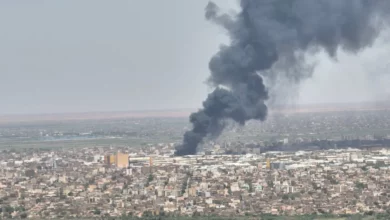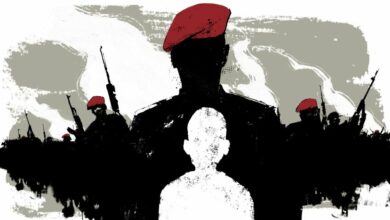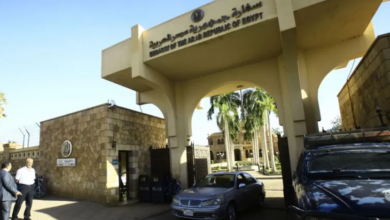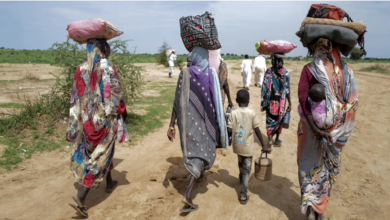Despite its oft-stated support for a united Sudan, Cairo has vowed to respect the outcome of a referendum on the independence of southern Sudan scheduled to take place on 9 January. The position, however, reflects Egypt’s confused foreign policy vis-à-vis its southern neighbor.
On one hand, Egypt fears that secession would further complicate tensions between Nile Basin countries, with the new southern Sudanese state joining upstream nations’ opposition to Egypt’s historical share of Nile water. South Sudan leader Salva Kiir recently visited Ugandan President Yoweri Museveni to discuss building joint hydroelectric power stations.
But Egypt has also reiterated that southern independence would not pose a threat to its share of the Nile. Egyptian Foreign Minister Ahmed Abul Gheit said on Saturday that the 1959 agreement signed between Egypt and Sudan, which regulates Nile water distribution, remains in effect.
A leaked US diplomatic cable obtained by Al-Masry Al-Youm revealed that Egyptian officials have been pressuring the United States to delay the referendum, drawing Washington’s attention to the potentially “fatal implications” associated with the break-up of Africa’s largest country.
“The result could be the creation of a non-viable state that could threaten Egypt's access to Nile water,” said an Egyptian Foreign Ministry official quoted in the cable.
"In its approach to Sudan, Egypt is adopting almost the same strategy as it does towards Rwanda and Burundi, where its aims are to secure Nile water, gain support of some leaders and make some intelligence gains," said Mustafa Abatal, a US-based Sudanese columnist.
Failing to support the south’s quest for self-determination appears to be one such strategy. "Egypt refused the right to self-determination for the south, and was very hostile to [late leader of the Southern Sudan People's Liberation Army John] Garang's movement,” said Abatal.
After the Sudanese government agreed with opposition groups to an Egyptian-Libyan initiative in 2000, Cairo objected to the addition of an article pertaining to the self-determination of southern Sudan.
After the 2005 Nifasha peace accord between north and south, “Cairo didn’t exert any political effort to encourage the north and south to maintain the country’s unity,” Abatal added. While Egypt’s involvement in Sudan could be seen in its sponsorship of reconciliation talks between opponents of Sudanese President Omar al-Bashir’s regime, he said, it was not equally involved in bridging the south-north divide.
“On the contrary, Egypt tried its best to hinder the vote. Such a policy is the result of not knowing the importance of the referendum to the southern Sudanese and their external allies," argued Abatal.
In 2008, President Hosni Mubarak was the first Arab leader to visit Juba, the capital of the semi-autonomous region of southern Sudan.
"This is the last phase of Egypt's foreign policy towards Sudan, in which Cairo is forced to deal with the reality of secession," said Abatal. “Mubarak's visit to Juba means that he is dealing with two states. His discourse to the north is about unity, while his discourse to the south is about secession. This has caused Egypt to lose credibility at both ends.”
Cairo, however, remains concerned about possible violence by the northern ruling regime against the south, which would force thousands of Sudanese to pour into Egypt as refugees.
Egypt already plays host to tens of thousands of Sudanese refugees. While the exact number is disputed, some estimates put the Sudanese community in Egypt at more than two million, 50,000 to 500, 000 of whom are thought to be refugees that fled the country due to conflict in the south and in Darfur.
This month, the UN High Commission for Refugees (UNHCR) estimated the number of Sudanese refugees and asylum seekers currently registered in Egypt as of November to be 22,534 out of a total of 39,461 registered refugees in the country.
"Formal relations between the Egyptian government and its Sudanese counterpart have always been marred by a measure of mistrust," said Amani al-Taweel, an Egyptian expert on Sudan at the semi-official Al-Ahram center for Political and Strategic Studies.
Because of this mistrust, "Egypt was unable to provide real support to a regime that has been characterized by devious tactics and which has extremist foundations," argued al-Taweel. "Cooperating with such a regime would bring more losses than gains.”
Cairo recently proposed a loose “confederation” as an alternative to southern independence. In November, Abul Gheit said that Egypt would not object if the referendum were delayed by several months.
The referendum is enshrined in the Nifasha accord, which was initiated by the Intergovernmental Authority on Development, a seven-country regional development organization for east Africa. The accord ended more than 20 years of civil war (1983-2005) between the majority-Muslim north and the largely non-Muslim south.
Two million people are said to have lost their lives in Sudan’s civil war, the African continent’s longest in history.




